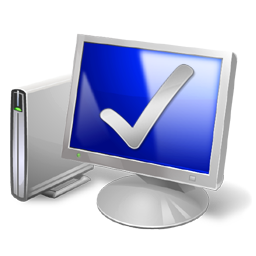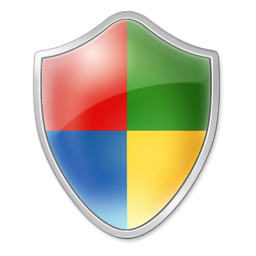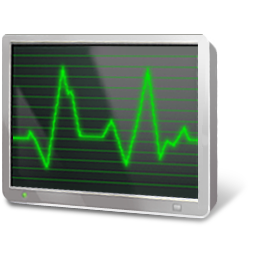 My PC Maintenance
My PC Maintenance
My PC Maintenance is a comprehensive guidance on: How to do PC maintenance and prevent computer problems. How to troubleshoot, fix bugs and repair your home computer. What are the good computer repair tools and how to use them?
Weird error messages, Computer are getting slow (especially at startup) and freezing are few common computer problems, which are often occurs as a result of poor PC maintenance. You CAN repair your computer at home even you do not know much about computers.
Why proper computer maintenance is important?
My aim, in creating this site, is to share my experience to save you money and time and provide maximum information about computers. This web site is not limited to home computer repair and maintenance. You will also learn many more information, tips and tricks about computers.
10 Tips to Keep your Computer Running Smoothly:
- Never, never, turn your computer off with the power switch until Windows has shut down.
The one exception to this rule is when your computer locks up and your hard drive is not running (hard drive light is not blinking). In this situation, you can turn the power off without harmful effects to the hard drive. As cutting the power can also result in lost data or Windows files, you should only do this when you have to.
Following this rule will prevent permanent hard drive defects caused by the hard drive heads contacting the surface of the drive disc, and it will prevent a host of Windows problems. Whenever possible, recover from crashes by pressing the Ctrl + Alt + Delete keys at the same time. Press them again to reboot your computer.
Never unplug peripherals from the computer when it is powered up. Unplugging with the power on can short out the connector socket or the motherboard.
The only exception to this rule is if you know a peripheral is "hot pluggable". If you do not know what "hot pluggable" means then ignore this exception.
- I highly recommend that you purchase an UPS (uninteruptable power supply) for your computer. This will keep your computer from crashing during power outages, and will protect your computer from low and high voltage occurrences. An UPS is far superior to a surge protector and will save your computer from almost any type of power disaster. (See #1 above for what happens when your computer crashes.)
- Backup, backup, backup, any data you cannot afford to lose to at least two separate physical drives. So backup data to external hard drives, Zip disks, Blueray, DVD-RWs etc. The time to backup is when you create something you can't afford to lose. Don't wait until tomorrow.
- Run Disk Cleanup, Scandisk and Defragment at least once a month. This will keep your hard drive healthy and prevent crashes. Alternatively, you can use TuneUp Utilities to keep your hard drive healthy.
- Clean inside your computer case. You are probably thinking 'why would I want to do that?'. Well you want to clean inside your computer to remove dust and dirt from the components inside the computer. Power supplies often blow up from being clogged with dust and processors usually overheat and die. It is a very common cause of hardware failure, and therefore prevention is better than cure.
- Do keep at least 500 MBs of your C: drive free for Windows to use. If you use Windows Vista or Windows 7 then you should have 1-2 GBs of free space on your C: drive. If you do not have enough free space you will choke Windows and it will start dumping data to your hard drive, or it will just get really, really, slow. Use the Add or Remove/Uninstall programs in the Windows Control Panel to delete unneeded programs from your drive. You can also use Gain Disk Space and Uninstall Manager in TuneUp Utilities to clean up your drive. If you do use Gain Disk Space or another hard drive cleaner, do not delete shared files unless you back them up. The cleaners do a rotten job of knowing if another program uses shared files.
- Do not let a lot of programs load up when you start your computer. They use valuable memory and Windows Resources (Windows internal workspace). All programs in your Windows System Tray (in the lower left of your screen) are running on your computer. Close them if you don't need them or run them and configure them not to load when you boot up. Other programs running in the background can be found by pressing Ctrl + Alt + Delete at the same time. You can configure system startup by using Startup Manager in TuneUp Utilities.
- Do use a virus checker regularly. Everyone should use a virus checker with up-to-date virus database. The best type of protection is continuous monitoring from a dedicated anti-virus program like Norton Antivirus. There are some free anti-virus like Microsoft Security Essential, AVG Free, Avira AntiVir. The second best thing is to use is the free online virus checkers such as Housecall provided by Trend Micro.
- If you have a high speed Internet connection you need a firewall program. A firewall program keeps those who want to hijack your computer from gaining access to your system. You really do not want someone else running your computer. I suggest you purchase and run Norton Internet Security program. Your firewall should boot up with your computer to protect it from invasion.
Case in point: When I am online 10 hours or more with my DSL connection, my computer is usually attacked by a hacker at least once. Do not think you are safe from hackers!! Hackers use search programs to seek out computers at random. Get a firewall program and use it.
- Keep track of the software disks you receive with your computer and new peripherals. These disks contain valuable software drivers and programs for Windows and are needed when Windows must be reloaded. Keep these disks and your Windows software disks in a safe, dry, place -- you never know when you will need them. Remember to bookmark your motherboard and devices manufacturer support site for further BIOS, drivers and software/utilities update.
Hopefully these computer maintenance tips will keep you out of trouble.
*All sources/products linked on this site are/may be trademarks and/or registered trademarks of their respective companies in the United States and/or other countries and/or protected by US and/or International laws.
Some sources/products are alpha, beta, demo, trail, preview release, release candidate that not supported by their respective companies and this site, use on your own risk!
 Clean Up Tools
Clean Up Tools
 Disk Tools
Disk Tools




